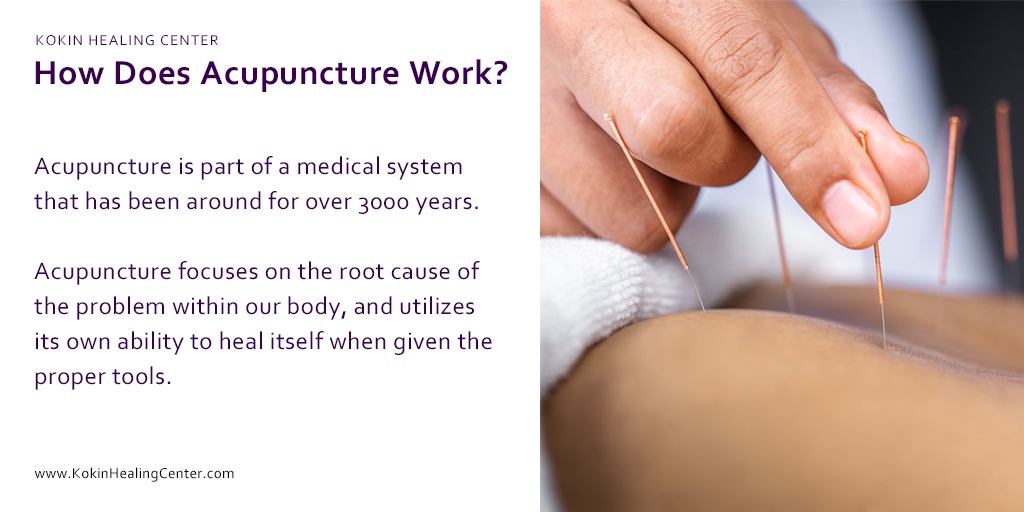When most people hear the word acupuncture, they don’t immediately think of relaxation. They most likely question how inserting tiny needles into their body could be considered a form of relaxation. Acupuncture is part of a medical system that has been around for over 3000 years, and it’s important to remember that acupuncture looks at solving problems within the body much differently.
Acupuncture focuses on the root cause of the problem, utilizing the body’s own ability to heal itself when it is given the proper tools. Just like doing long division, when we’re out of practice, we sometimes need a nudge to get back in the groove, our bodies work the same way. Think of it this way, when you have a sore muscle, you compensate by using other muscles or shifting your weight so that that area of your body doesn’t have to bear the entire load, which can then lead to pain in another area. The brain just has to be reset and reminded of the right way to actually function, and that’s what acupuncture is used for.
A key principle of acupuncture is something called qi (pronounced “chee”). Qi is most frequently translated into energy and according to Traditional Chinese Medicine, it is the vital force that resides within all of us and everything that surrounds us. Qi moves throughout the body via pathways called meridians. According to TCM theory, there are 14 main meridians and 12 of those correspond to specific organ systems in the human body and the other 2 meridians run up the front and back of the body.
Along these pathways are points known as acupoints. Acupoints tend to have high concentrations of nerve endings that are all capable of triggering biochemical and physiological changes throughout the body. These changes can occur instantaneously or over time, depending on the individual. When a needle is inserted into an acupoint, sensory receptors are stimulated and a chain reaction occurs. The sensory receptor stimulates the nerve, which then transmits impulses to the brain, specifically the hypothalamic-pituitary-adrenal system. This interaction between the hormones, glands and your brain create a powerful reaction that regulates bodily processes and brings about homeostasis.
If you have never tried acupuncture, I encourage you to! Even if you have no known illnesses, aches, or pains, acupuncture can still be beneficial overall. We all have stress and over time, stress can make people unwell. Acupuncture can combat the effects of stress and help prevent disease. You won’t believe how incredible you feel after a good acupuncture treatment.
Feel free to reach out to us and schedule an appointment to talk about the benefits of acupuncture!


